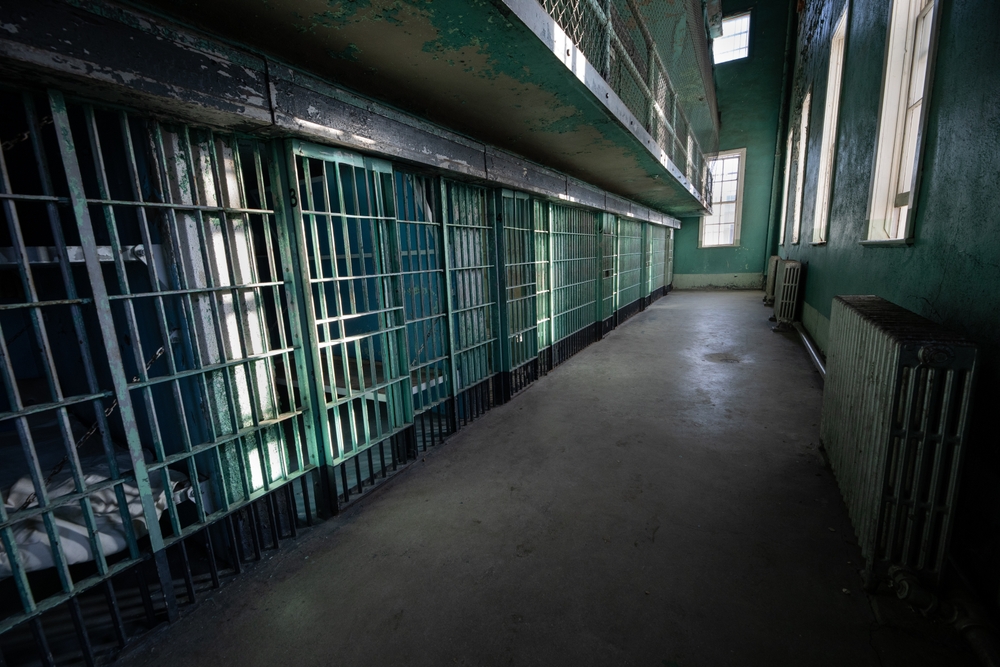A new report released by the Justice Department on Thursday reveals shocking conditions at Fulton County Jail in Georgia, highlighting severe overcrowding, violence, and neglect that have resulted in the violation of incarcerated individuals’ constitutional rights, ABC News journalist Luke Barr reported.
The facility, currently operating at double its intended capacity, has been described as a “death sentence” for some detainees due to its unsafe and inhumane conditions.
Widespread Violence and Neglect
The Justice Department’s Civil Rights Division found that the jail fails to protect inmates from significant harm, including homicides and stabbings. “Detention in the Fulton County Jail has amounted to a death sentence for dozens of people who have been murdered or who died as a result of the atrocious conditions inside the facility,” said Kristen Clarke, assistant attorney general for civil rights at the DOJ. The report cited cases of inmates being stabbed over 20 times, widespread violence, and a lack of supervision contributing to the unsafe environment.
Between 2022 and 2024, six deaths occurred at the jail, including one particularly disturbing case where a man was found malnourished and covered with body lice in his cell. “He was neglected to death,” the report states.
In 2023 alone, the facility reported 314 stabbings and over 8,000 assaults. Clarke pointed out the staggering contrast by noting that the Fulton County Jail experienced as many stabbings in a single month as the Miami-Dade County Jail—housing a larger population—did in an entire year.
Overcrowding and Mental Health Crisis
The jail is severely overcrowded, housing twice its designed capacity, which has led to deteriorating living conditions. Over 62% of the population suffers from mental health conditions, exacerbating the already dire circumstances. “The demand for competency restoration services has outpaced availability in Georgia,” the report notes, leaving individuals awaiting treatment in the jail for extended periods.
The report also highlighted the plight of vulnerable groups, including children, LGBTQ+ individuals, and those with medical and psychiatric disabilities, who are particularly susceptible to violence and mistreatment in the facility.
Inadequate Food and Healthcare
Nutritional neglect is another alarming issue. The Justice Department found that 90% of those housed in the mental health unit were “significantly malnourished with obvious muscle wasting.” Medical care in the facility fails to meet basic constitutional standards, with inadequate mental health services and poor access to treatment.
Calls for Accountability
The investigation was launched after a detainee’s death in 2022. At a press conference, U.S. Attorney Ryan K. Buchanan described the findings as “shocking,” emphasizing the urgent need for reform. Clarke expressed optimism about working with the Fulton County Sheriff’s Office to address the issues, stating, “None of these problems are new. And despite widespread awareness of these issues, the unconstitutional and illegal conditions have persisted.”
In October, the DOJ released a report that found that conditions of confinement in Georgia’s prisons violate the Eighth Amendment to the Constitution.
Broader Implications
The Civil Rights Division’s investigation examined six critical areas: living conditions, protection from harm, use of force, medical and mental health care, and discrimination against individuals with psychiatric disabilities. The report suggests that data on jail violence may be underreported, further obscuring the full scope of the crisis.
Fulton County Jail’s recent prominence, as the location where former President Donald Trump turned himself in over charges related to the 2020 election, has drawn additional scrutiny. However, the report makes it clear that the jail’s issues extend far beyond individual cases and require systemic solutions.
The Fulton County Sheriff’s Office has yet to respond to the report, but the findings underscore the urgent need for accountability and action to ensure the rights and safety of those incarcerated.

Leave a Reply